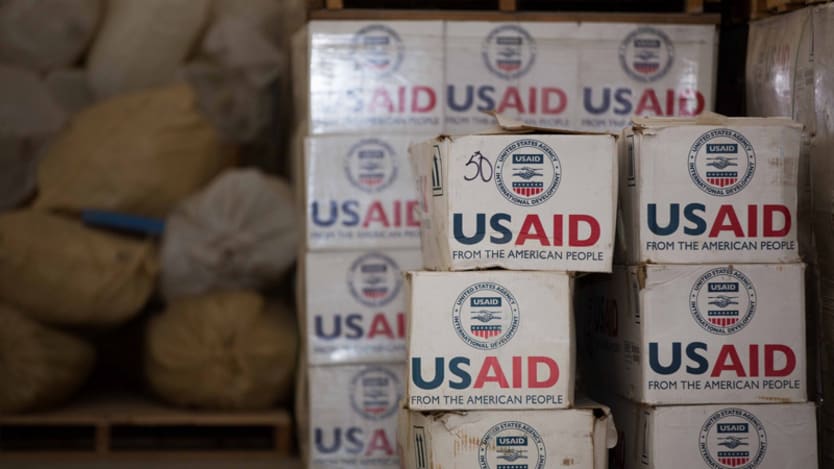
While policy details are thin, President-elect Donald Trump’s likely views on foreign aid and development assistance can be summed up in two words: America first.
During the campaign, Trump’s statements suggest that he believes that the U.S. should be investing its money in roads and schools in America’s inner cities, not abroad. He doesn’t want U.S. foreign aid to go to countries that “hate us.” He wants to renegotiate alliances and trade agreements to provide greater economic benefit to the U.S. He prioritizes international engagement to respond to perceived threats to the U.S., such as Islamic extremism, terrorism, migration and disease.
US development policy for the next 4 years
It is conceivable with a Trump presidency and Republican-controlled Congress that U.S. foreign aid spending and policy will take a major hit. At its most extreme, this could mean the abolishment of the U.S. Agency for International Development, or its absorption into the Department of State, a recurrent conservative proposal.
Indeed, when Newt Gingrich, a Trump insider and possible secretary of state, became speaker of the House of Representatives in 1994, USAID’s demise was on his agenda. This would serve multiple ends, including cutting government and unpopular spending and making foreign aid more subservient to national security objectives. Even if the agency survives, there could be significant budget and staffing cuts. Either way, the international development perspective is likely to lose the seat at the national security table it has had for the past eight years.
This, however, would be a misguided approach. U.S. foreign aid is much more effective, and efficient, when USAID is strong. And American foreign policy is more likely to succeed when it addresses underlying causes like exclusion, unemployment and inequality. These are, after all, many of the issues that motivated the US electorate on Tuesday.
We don’t yet know who will fill key positions at the White House, State Department, Defense Department, congressional committees, and key diplomatic posts. U.S. foreign assistance priorities have been remarkably bipartisan for the last decade, with investments for reducing HIV/AIDS and malaria, increasing food security, energizing Africa, and stabilizing Afghanistan getting consistent support on both sides of aisle on Capitol Hill.
Foreign aid is also something conservatives frequently decry when they don’t control it, and see as a vital tool when they do. That said, development is unlikely to be a high priority at the beginning of a Trump administration. And the initial attention is gets will likely be negative — framed as ending handouts, waste and corruption and reforming a broken system.
Likely priorities and casualties
The big losers will likely be investments in multilateral institutions; democracy, rights and governance; women and girls; and climate. The U.S. will likely simultaneously become more assertive in and less supportive of the United Nations, the World Bank and other key multilateral bodies. If those institutions don’t bend to Trump’s will they will be derided as bloated bureaucratic institutions that take and waste U.S. money, diminish U.S. sovereignty, and take the credit the U.S. deserves for its investments. Bilateral relationships that get America the “best deal” — on trade, aid, or security will be the norm.
If past statements about Vladimir Putin, Saddam Hussein, and Egypt’s Abdel-Fattah el-Sissi are any guide, don’t look for investments in democratic reform, strengthening civil society, or fighting authoritarian restrictions on press, political protest, minority, women’s and LGBT rights.
There are some interesting cross-currents here, however. Investments that require up front improvements in governance, rule of law, and corruption — such as those undertaken by the Millennium Challenge Corp. — have been very popular with Republicans. Many conservatives have also supported an anti-authoritarian “freedom agenda” in the past, but this may be where the president-elect’s nativist tendencies trump the traditionally more expansive neoconservative agenda.
Women and girls may have the most to lose. From the World Bank to the Bill & Melinda Gates Foundation to the SDGs to the new U.N. secretary-general, the economists, technologists, health advocates, educators, humanitarians, rights activists, and data junkies are all aligned and making the argument that investment in women and girls might be the best dollar spent. This includes a healthy dose of family planning and the sorts of rights-based advocacy that seems inimical to Trump’s mien. Vice President-elect Mike Pence, a radical social conservative, may be influential in rolling back U.S. policy and investments in support of women and girls.
Finally, the gasping sounds emanating from the climate negotiators in Morocco (for this week’s follow-up to the newly enforced Paris climate agreement) upon hearing the results of the U.S. election were echoed by the gasping sounds of Delhi’s school children, who stayed home this week due to levels of smog equivalent to smoking two packs a day. Portraying climate change as a “hoax” and criticizing “green” investments, Trump has said he’ll cancel U.S. participation in the Paris agreement. Ironically, New Jersey Gov. Chris Christie, director of Trump’s transition team, knows better than any U.S. politician the impact of climate-change exacerbated storms, thanks to Superstorm Sandy which caused $70 billion in economic damage, much of it in his state, in 2012.
“Trump the Builder may come to embrace one of the most important trends in development finance: leverage.”
— Alex Thier, incoming executive director at the Overseas Development Institute and former head of policy, planning and learning at the U.S. Agency for International DevelopmentTwo areas that might gain support will be the response to fragile states and an explicitly private sector approach to investment in developing countries. These can be good or bad for development, depending on how they are accomplished.
U.S. development and humanitarian assistance efforts are increasingly dedicated to addressing the challenges that emanate from fragile states: forced displacement and migration, pandemics and natural disasters, illicit trafficking and piracy, violent extremism and atrocities, and disenfranchisement.
Many of these will continue to be U.S. priorities, and there is broad consensus that the U.S. approach to fragile states needs a serious boost. This will require doing a much better job of choosing the places, people, and circumstances for enhanced investment. As we assess our ability to impact any of these situations, it is incumbent upon the administration to consider not only the likelihood of change, but also the relative importance of that change and the relative difficulty of achieving it.
Rather than militarizing the response, however, the U.S. needs to focus on strengthening effective and accountable institutions, addressing corruption, and boosting inclusive growth in higher risk environments. The siren song of “burden-sharing” through multilateral cooperation is also especially hard to resist, and the Trump administration should continue to invest in multistakeholder “compacts” such as those called for in the New Deal for Fragile States to increase effectiveness and “value for money.”
Finally, Trump the Builder may come to embrace one of the most important trends in development finance: leverage. Achieving any kind of change at scale requires the U.S. to leverage the much greater forces of private finance, remittances, trade, private sector investment, technological innovation, and most significantly, domestic public resources. This is the type of thinking that might appeal to the self-proclaimed “king of debt” and someone who knows how to put deals together. That said, building infrastructure, health and education systems, and local entrepreneurship to serve the poor in other countries may literally be a bridge too far.
Putting America first does not need to be at odds with good development policy. Indeed, the power of development done well is tremendous, and even the most hardened skeptics can come around. In the broader scheme of things, ending extreme poverty is great for America and a sound investment in our security and economic future. We can only hope the new administration realizes this sooner rather than later.
Stay tuned to Devex for more news and analysis of what the Trump administration will mean for global development. Read more coverage here and subscribe to The Development Newswire.








